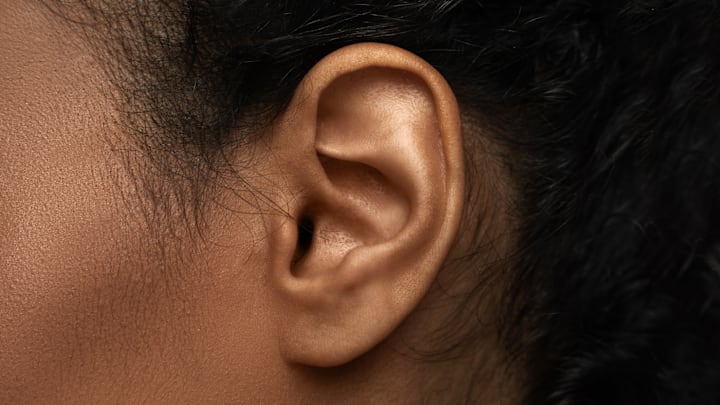You often hear warnings of how not to clean your ears. (Those cotton swabs that are perfectly shaped to fit your ear canal are off-limits.) Advice on the best way to clean your ears—and how often you should do it—is harder to come by. That's because in most cases, leaving your ears alone is the best way to keep them clean and healthy.
Ears are excellent at maintaining themselves. They produce cerumen, a.k.a. earwax, to catch particles like dirt and dust before they reach the sensitive parts of the inner ear. Though earwax may feel unsanitary when it builds up, your ears would be much filthier without it. The waxy secretion even has antimicrobial properties.
Most cerumen cycles out of the body on its own. When you chew your food, your jaw pushes earwax toward the openings of your ears, where it dries up and eventually falls out. This is why any ear care routine you follow should only focus on the outside parts of your ear. For the majority of people, wiping the exterior of their ears with a towel once a day after taking a shower is all the cleaning they need.
Not only is ignoring the instructions on the Q-tip box and inserting one into your ear canal unnecessary, but it can actually do more harm than good. Cotton swabs shove wax toward your eardrum, where it can get stuck and cause hearing problems. Sometimes pushing the Q-tip too deep leads to more serious damage, like a ruptured eardrum.
Some earwax is healthy, but cerumen production becomes a problem when it causes earaches, clogged sensations, and hearing trouble. If you're experiencing excessive earwax buildup, resist the urge to reach for the nearest box of cotton swabs. A few drops of olive oil, hydrogen peroxide, or an over-the-counter solution will be much easier on your ears. Use these methods once or twice a week until your earwax clears up, and see a doctor if you can't resolve the issue at home.
